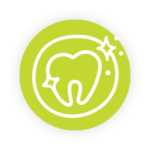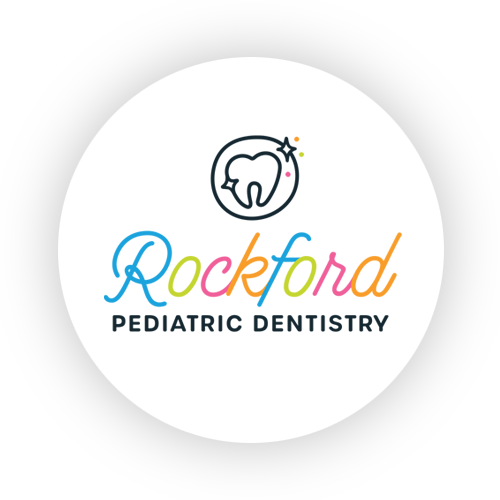
Canker Sores at Rockford Pediatric Dentistry
Soft tissue mouth sores are frequent and common and can affect all ages. Most mouth sores are harmless, but some can indicate more serious problems. Soft tissue canker sores are painful lesions that form in your oral soft tissues. They can appear on your lips, gums, tongue, cheeks, and the roof or floor of your mouth.
Soft tissue mouth sores are more likely to occur at a certain time in life. For example, thrush and gingivostomatitis are more common in children, leukoplakia and lichen planus are more common in older adults.
Common Causes of Soft Tissue Mouth Sores
There are a variety of things that can lead to mouth and canker sores. They can range from a common injury to serious health conditions. These include:
- Biting your lip, cheek, or tongue.
- Burning your mouth with hot food.
- Using a tobacco product.
- Irritation from wearing braces.
- Brushing your teeth too aggressively.
- Hormonal changes.
- Exposure to the herpes simplex virus.
The Different Types of Soft Tissue Mouth Sores
Soft tissue sores describe different conditions affecting your mouth. These include:
- Canker sores- Also called mouth ulcers, canker sores are common soft tissue lesions. They are not contagious and go away in 10 to 14 days.
- Cold sores- Or fever blisters, cold sores are caused by the herpes simplex virus. Cold sores are contagious and can be transmitted.
- Gingivostomatitis- These sores might be caused by a bacterial or viral infection, or from poor oral hygiene. These sores are on the gums or inner cheeks and common in children.
- Thrush- A yeast infection inside your mouth. Thrush creates white, creamy lesions on the tongue, cheeks, and gums. Thrush is common with denture wearers.
- Oral lichen planus- Lichen planus is a chronic inflammatory disorder and can affect your lips, cheeks, gums, and tongue. You might notice raised, lacy patches of tissue.
- Leukoplakia- These are thick, white patches on oral soft tissues. Leukoplakia is quite common if you smoke. It usually goes away, but in a severe case it can be a warning sign of oral cancer.
- Oral cancer- If you have oral cancer, you will notice ulcers or red or white sores in the mouth. These lesions are related to oral cancer and will not heal.
The Symptoms of Soft Tissue Mouth Sores
Symptoms will vary depending on the type of sore you have. The most common symptoms are redness, pain, and inflammation. You might also experience:
- Some tingling or burning sensations.
- Some blistering on your skin.
- Inflammation in one of your eyes.
- Difficulty eating spicy or salty foods.
- Difficulty swallowing.
If you have a symptom, you should contact Rockford Pediatric Dentistry right away. If you have no warning signs but have discomfort, pain, feel ill, or are having trouble eating you should also call us. If you have a sore that persists, you need to be examined by your team at Rockford Pediatric Dentistry to ensure that the sore is not cancerous.
The Treatment of Mouth Sores
We begin with questions identifying your symptoms and your medical history. Rockford Pediatric Dentistry will document your consumption of food or drugs, and any exposure to other substances like tobacco, chemicals, toothpaste, mouthwashes, fumes, metals, or even dust. We need to clarify the current conditions that may be causing your mouth sores, documented conditions that are risk factors for mouth sores, like a weakened immune system, cancer, or HIV infection, and even your sexual history. Rockford Pediatric Dentistry then performs a physical examination. Your mouth is inspected, noting both the location and nature of any sores. We do a general evaluation to look for signs of systemic disorders. Your skin and eyes are examined for any sores, blisters, or rashes.
We will treat the cause if confidently identified. We can prescribe antibiotics for any bacterial infections. We might advise avoiding substances or drugs that are the source of your sores. Gentle toothbrushing with a soft brush and adding salt-water rinses will help keep your sores from becoming infected. Discomfort can be controlled by avoiding acidic or highly salty foods and any substances that are irritating. Topical treatments for mouth sores include:
- Anethetics
- Protective coatings
- Corticosteroids
- Treating with a laser or chemicals
An anesthetic such as lidocaine can be used as a mouth rinse. These rinses will numb the mouth and throat but can make swallowing difficult, so a child using them needs to be watched to ensure that they do not choke. Lidocaine can also be applied directly to the sore. Protective coatings containing antacids can be relieving and soothing when applied as a rinse. We can add other ingredients such as lidocaine or antihistamine. Mouth rinses that contain alcohol need to be avoided because they will make the sores worse. If we are certain that the sore is not caused by an infection, we can prescribe a corticosteroid rinse or gel to be applied to each sore. Some soft tissue canker sores can be treated with a low-powered laser, which relieves the discomfort immediately and can prevent the sores from returning.

Rockford Pediatric Dentistry
At Rockford Pediatric Dentistry, we are passionate about providing a safe, positive, and happy environment for your family. We want our patients to be able to safely enjoy the sports they love, while protecting their developing smiles. We treat all of our patients as if they were our own children. As parents ourselves, we understand how important it is to treat your family with compassion, the most up to date dental technologies, and the highest standard of care. We strive to earn your trust and provide consistent quality for your family. Call today to make Rockford Pediatric Dentistry your new dental home.
Location: 1055 Featherstone Rd Suite A, Rockford, IL 61107
Call: (779) 210-2556
Facebook: Rockford Pediatric Dentistry
Instagram: Rockford Pediatric Dentistry


